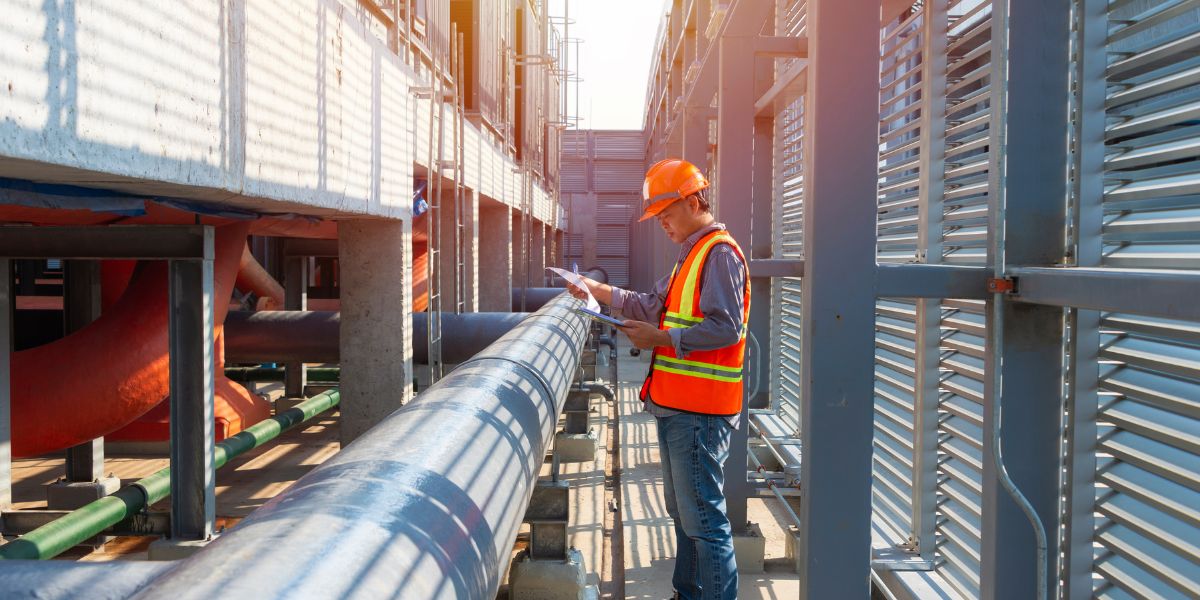Updated on novembro 19th, 2023
D3 Visa Portugal
The D3 visa Portugal allows you to carry out a highly skilled occupation in the portuguese territory, also known as Visa for High Qualified Professionals.
High qualified activities are those that require a certain level of academic training and professional experience.
Generally speaking, in order to legally reside in Portugal, any foreign citizens need to meet certain basic requirements:
- Be in possession of a valid travel document (passport)
- Hold an entry visa that is appropriate for the purpose of stay
- Have sufficient means of support for the duration of stay and for return journey to the country of origin.
Key Takeways
Indice
Toggle- D3 Visa allows highly qualified activities in Portugal.
- Eligibility: Contract or self employment in a skilled activity, adequate academic training, and financial means.
- Examples of high-skilled fields: Engineering, Sciences, IT, Medicine, Arts, and Education.
- Financial proof can be provided via bank account or commitment letter.
- Tech Visa program facilitates visa process for IT professionals.
- Salary requirements: At least 1.5 times the national average gross annual salary or 3 times the value of IAS (Social Support Index)
Highly Qualified Activity in Portugal
Examples of highly qualified activities include:
Engineering: engineers from all fields, such as civil, electrical, mechanical, chemical, production, telecommunications, and more.
Sciences: scientists from all fields, such as biologists, physicists, chemists, mathematicians, and more.
Information technology: programmers, software engineers, system architects, information security specialists, and more.
Medicine: doctors, nurses, physiotherapists, pharmacists, and more.
Arts: artists, musicians, dancers, actors, and more.
Education: teachers, researchers, educational consultants, and more.
Portugal Visa D3 Requirements
To be eligible for the D3 visa, you must have a job contract or perform some self employed activity that requires special knowledge and skills and still have an adequate level of academic training.
Furthermore, you must prove that you have the financial means to live in Portugal.
To prove these means, you can present one of the following options:
Bank account: You can present a copy of a bank account with sufficient balance to cover your expenses. The amount you must prove depends on the duration of your stay.
- Letter of commitment: You can present a letter of commitment signed by someone living in Portugal who commits to covering your expenses. This letter of commitment must include information such as name, address and telephone of the person signing the letter, which must be accompanied by a copy of the passport or ID of the person responsible for expenses.
- Travel insurance: You can present a travel insurance that covers your medical and travel expenses during your stay in Portugal. The travel insurance must be issued by a recognized company and must be valid for the entire period of your stay.
- Other options: You can also present other proofs of financial means, such as pension documents, salary, inheritance, among others.
The decree nº 1563/2007, of December 11th, sets the means of subsistence that foreign citizens must have for entry and stay in national territory.
Also see decree nº 760/2009, of July 16th, which mentions exceptional measures regarding the setting of these means.
To apply for the D3 visa, you must present various documents, including your passport, a job contract or self employed activity declaration, a letter from the employer, proof of academic training and sufficient financial means to live in Portugal.
What is the Tech Visa in Portugal
The Tech Visa is a program designed to make it easier for highly qualified IT professionals to work in Portugal.
This program was created to streamline the process of obtaining visas and residence permits for tech workers.
Tech companies in Portugal are actively seeking employees from outside the European Union and uses this program to hire workers.
The Tech Visa certification is not mandatory, but companies that have it are able to issue terms of responsibility, which speed up the visa and residence permit process for their future employees.
Tech Visa is administered by the Institute for Support of Small and Medium Enterprises and Innovation (IAPMEI), and as a worker, you do not need to apply for this program, it is the company that must apply and meet their requirements.
As a highly qualified professional seeking to work in Portugal through the D3 Visa, you must also pay attention to the terms of the employment contract, particularly with regard to wages.
The agreed upon remuneration must fall within the established minimum limits.
The values for the Tech Visa in the Portaria n.º 59-A/2022 set the minimum monthly payment at 2.5 times the value of the IAS (Social Support Index).
The SEF website has more information on employment contracts for highly skilled work performed by a subordinate worker, in which case the following limits apply:
1.5 times the national gross annual salary or
3 times the value of the IAS.
For professions that belong to higher levels of public administration, executives and higher level employees of companies or specialists in intellectual or scientific professions, the criteria are different.
In these cases, the salary must be at least 1.2 times the national gross salary or 2 times the value of the IAS.
In summary, to apply for a D3 Visa, the applicant must already have an employment contract or a promise of an employment contract and meet the following requirements:
1. The activity to be performed must be classified as highly qualified and the professional must prove appropriate qualifications or experience for its practice;
2. The professional must have sufficient means of subsistence for the duration of their stay and for their return trip to their country of origin;
3. The professional must have a valid travel document (passport) and an appropriate entry visa for the purpose of the stay.
It is important to note that the Tech Visa program only applies to highly skilled IT professionals and is not mandatory for obtaining a D3 Visa.
European Blue Card
The EU Blue Card is a work permit that allows individuals to exercise remunerated activities in other European countries.
This card grants facilitated entry and residence for highly qualified workers.
If you are a highly qualified professional seeking employment in a European country, it is important to be familiar with the EU Blue Card.
It greatly simplifies the bureaucracy for those seeking job opportunities in Europe and was created to attract foreign talents with higher education.
Each EU country issues its own version of the Blue Card, but the applicable legislation, requirements, and characteristics of this residence title are the same for all Member States.
One of the most interesting features is that after 18 months of its grant, the holder can move to another EU Member State to exercise a highly qualified activity, along with their family.
In other words, after this period, if you obtain a job offer or contract from a company located in another EU Member State, and provided that the conditions of the term and minimum monthly salary are met, you can apply for a transfer of your Blue Card issued by Portugal to the Member State where you wish to reside, without further bureaucracy.
EU Blue Cards have a validity period of 1 to 4 years, depending on the issuing country and its holders, as well as their families, can enter and remain in the EU country that issued the card and also move freely to other EU member countries.
D3 Visa Portugal Exemptions
There is an exception that allows for the application for Residence Authorization without the need for a D3 Visa.
However, it is important to remember that the general rule is obtaining the D3 visa in your home country and applying for Residence Authorization only once you are already in Portugal.
As an exception, the law allows highly qualified professionals to apply for Authorization without a prior visa, as long as they have entered the country and remained in the territory legally.
This condition must be proven when you go to (SEF, now AIMA).
You will also need to present the same documentation that is required for the application of D3 Visa in your country.
This exceptional case does not apply for the EU Blue Card, as in order to get this document, it is necessary to have already obtained the D3 Visa.
It is always advised for those who wish to obtain the D3 Visa to Portugal to seek out specialized companies that can assist you in this process, ensuring a smooth and efficient experience with the bureaucracy.
These companies will analyze your employment contract and the letter from the company explaining why the visa applicant’s hiring is important for the business, in addition to evaluating the applicant’s qualifications and what makes them indispensable for the job in question.
These companies will also verify if the D3 Visa is the most suitable for the specific case and will check the documents according to the requirements of the Portuguese authorities.
After submitting the documents, an appointment will be made for an interview at a consulate to stamp the visa in your passport.
Once the visa has been obtained, the applicant must then work on the necessary documentation for the SEF interview to obtain the residence permit and potential family reunification for their family members.
FAQs (Frequently Asked Questions)
What is D3 Visa Portugal?
The D3 visa Portugal allows you to carry out a highly skilled occupation in the portuguese territory, also known as Visa for High Qualified Professionals.
What is considered high qualified activities in Portugal?
High qualified activities are those that require a certain level of academic training and professional experience.
How to apply for a D3 Visa Portugal?
To be eligible for the D3 visa, you must have a job contract or perform some self employed activity that requires special knowledge and skills and still have an adequate level of academic training.
What are the finnancial requirements to apply for a Visa in Portugal?
The decree nº 1563/2007, of December 11th, sets the means of subsistence that foreign citizens must have for entry and stay in national territory.
Also see decree nº 760/2009, of July 16th, which mentions exceptional measures regarding the setting of these means.
What is tech visa in Portugal?
The Tech Visa is a program designed to make it easier for highly qualified IT professionals to work in Portugal.
What is EU blue card?
The EU Blue Card is a work permit that allows individuals to exercise remunerated activities in other European countries.
Conclusão
Therefore, hiring a specialized service guarantees an advisory service from the beginning of the process, including guidance on the necessary documentation, setup of the visa application process and finalizing with the residence permit in Portugal.
Do you want to know about the most common issues about global mobility in Portugal?
Schedule a call with one of our lawyers in Portugal clicking in the button below to find out which portuguese visa is most suitable for you.
d3 visa, d3 visa portugal, visa d3, visa d3 portugal, visa high qualified professional, visa high qualified activity, high qualified professional, high qualified activity, high qualified professional in portugal, high qualified activity in portugal


